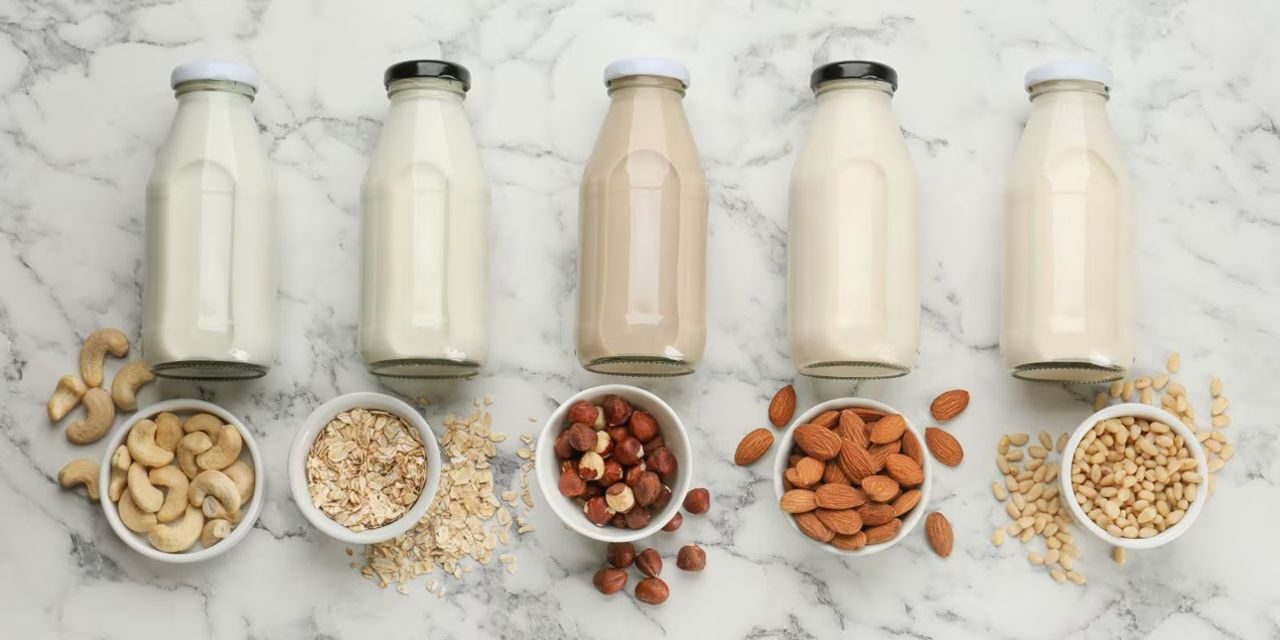FDA Provides Draft Labelling Recommendations for Plant-based Milk Alternatives to Inform Consumers. The FDA is accepting comments on the draft guidance.
The US Food and Drug Administration (FDA) has announced draft recommendations for the labelling of plant-based foods that are marketed as milk alternatives. FDA commissioner, Robert Califf, said: “The draft recommendations issued should lead to providing consumers with clear labelling to give them the information they need to make informed nutrition and purchasing decisions on the products they buy for themselves and their families”.
The draft guidance, ‘Labelling of Plant-based Milk Alternatives and Voluntary Nutrient Statements: Guidance for Industry,’ recommends that dairy-free products that include ‘milk’ in the name and have a different nutrient composition to their animal-derived counterpart should “include a voluntary nutrient statement that conveys how the product compares with milk based on the USDA’s Food and Nutrition Service fluid milk substitutes nutrient criteria”.
An example might read: “Contains lower amounts of vitamin D and calcium than milk”.
In September 2018, the FDA requested information on the labelling of plant-based milk alternatives (PBMA) with terms that include the names of dairy foods such as “milk.” More than 13,000 comments were received, and the FDA determined that consumers generally understand that PBMA do not contain milk and choose to purchase plant-based milk alternatives because they are not milk. However, many consumers may not be aware of the nutritional differences between milk and PBMA products. For example, almond- or oat-based PBMA products may contain calcium and be consumed as a source of calcium, but their overall nutritional content is not similar to milk and fortified soy beverages, and they are not included as part of the dairy group in the Dietary Guidelines 2020-2025.
Dairy foods, including milk, are recommended by the Dietary Guidelines as part of a healthy eating pattern and contribute multiple key nutrients, including protein and vitamins A and B-12, along with calcium, potassium and vitamin D, which are currently under-consumed. The Dietary Guidelines only includes fortified soy beverages in the dairy group because their nutrient composition is similar to that of milk. However, the nutritional composition of PBMA products varies widely within and across types, and many PBMAs do not contain the same levels of key nutrients as milk.
“Getting enough of the nutrients in milk and fortified soy beverages is especially important to help children grow and develop, and parents and caregivers should know that many plant-based milk alternatives do not have the same nutrients as milk,” said Susan T. Mayne, Ph.D., director of the FDA’s Center for Food Safety and Applied Nutrition. “Food labels are an important way to help support consumer behavior, so we encourage the use of the voluntary nutritional statements to better help customers make informed decisions.”
To support consistency across federal nutrition policies, the draft guidance recommends that industry use the USDA’s Food and Nutrition Service fluid milk substitutes nutrient criteria to determine if a PBMA is nutritionally similar to milk. Also, the FDA encourages consumers to use the Nutrition Facts label to compare the nutrient content of different products to help make informed choices.
The FDA is accepting comments on the draft guidance. A manufacturer may choose to implement the recommendations in a draft guidance before the guidance becomes final.
About FDA
The FDA, an agency within the U.S. Department of Health and Human Services, protects the public health by assuring the safety, effectiveness, and security of human and veterinary drugs, vaccines and other biological products for human use, and medical devices. The agency also is responsible for the safety and security of our nation’s food supply, cosmetics, dietary supplements, products that give off electronic radiation, and for regulating tobacco products.
Source: FDA Press Release
















